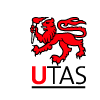Competency Based Assessment
To clearly appreciate the principles of assessment it is important to have a working understanding of competency-based systems.
Competence is a collection of knowledge, skills and attitudes that a practitioner needs to be able to demonstrate in order to perform a specific task, role or skills, to a defined standard.
Competency standards are often defined in terms of elements and performance criteria. They are developed by the profession to ensure and maintain a consistent level of expertise in the practical application of knowledge, skills and attitudes.
Many professional bodies have chosen to incorporate their competency standards into their registration processes for qualified practitioners, including the disciplines of nursing and pharmacy. Competency standards demonstrate that practitioners can meet standards to enable them to be registered to practice. These standards therefore also underpin the development of curricula and assessment of learning within the degree courses of these disciplines.
The competent demonstration of knowledge, skills and attitude is not always easily identified and is affected by the context in which it occurs. This is well illustrated in the ‘Iceberg Model’ in Figure 1.
Figure 1. The Rural Clinical Education ‘Iceberg’ Model

Clinical abilities , which form the core of the iceberg, that is highly visible surrounding social and political contexts such as the rural clinical environment influences ‘above the surface’. They generally involve a routine and predictable sequence of steps that have a definite start and end which produce tangible outcomes.
The bulk of the iceberg lies under the surface. This section of the iceberg is not readily visible to the observer, thus the use of questions is very effective in illuminating these abilities. They can be separated into four groups:
- Clinical management abilities incorporate knowledge, skills and attitudes necessary to plan activities to do a number of tasks, at the appropriate standard, in correct sequences. A student skilled in clinical management abilities will be able to anticipate and avoid problems and management unexpected aspects that may arise.
- Clinical environment abilities include working effectively within particular organisations and within various constraints. Knowledge, skills and attitude relating to these abilities enable students to adapt their performance to a variety of contexts and environments.
- Clinical learning abilities relate to the self-directed nature of learning in the clinical setting. Students who are skilled learners are adaptable to change and are open to sharing and encouraging learning for others.
- Clinical relationship skills incorporate the ability to maintain effective professional relations, work as a team member and discuss workplace issues and problems.
|




